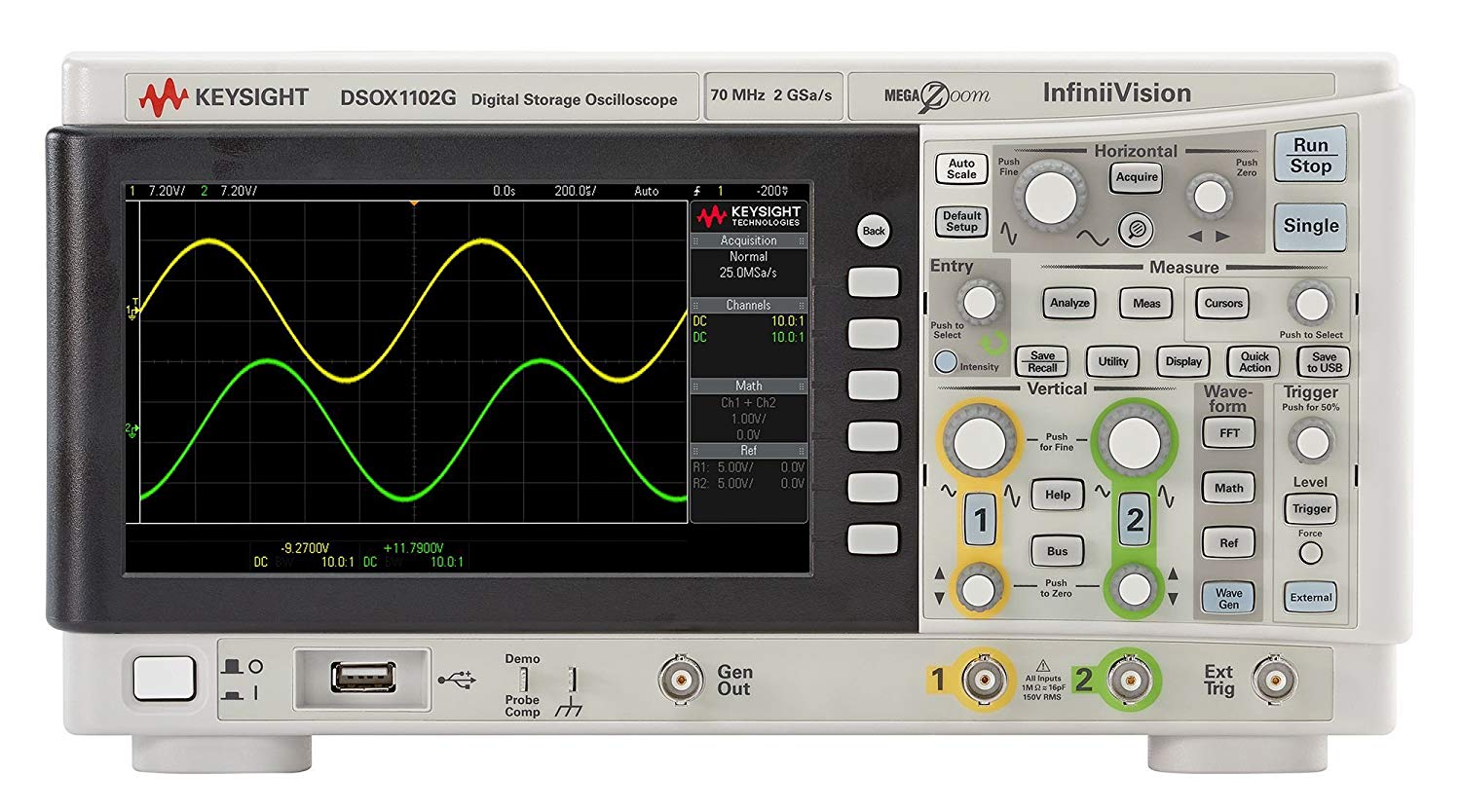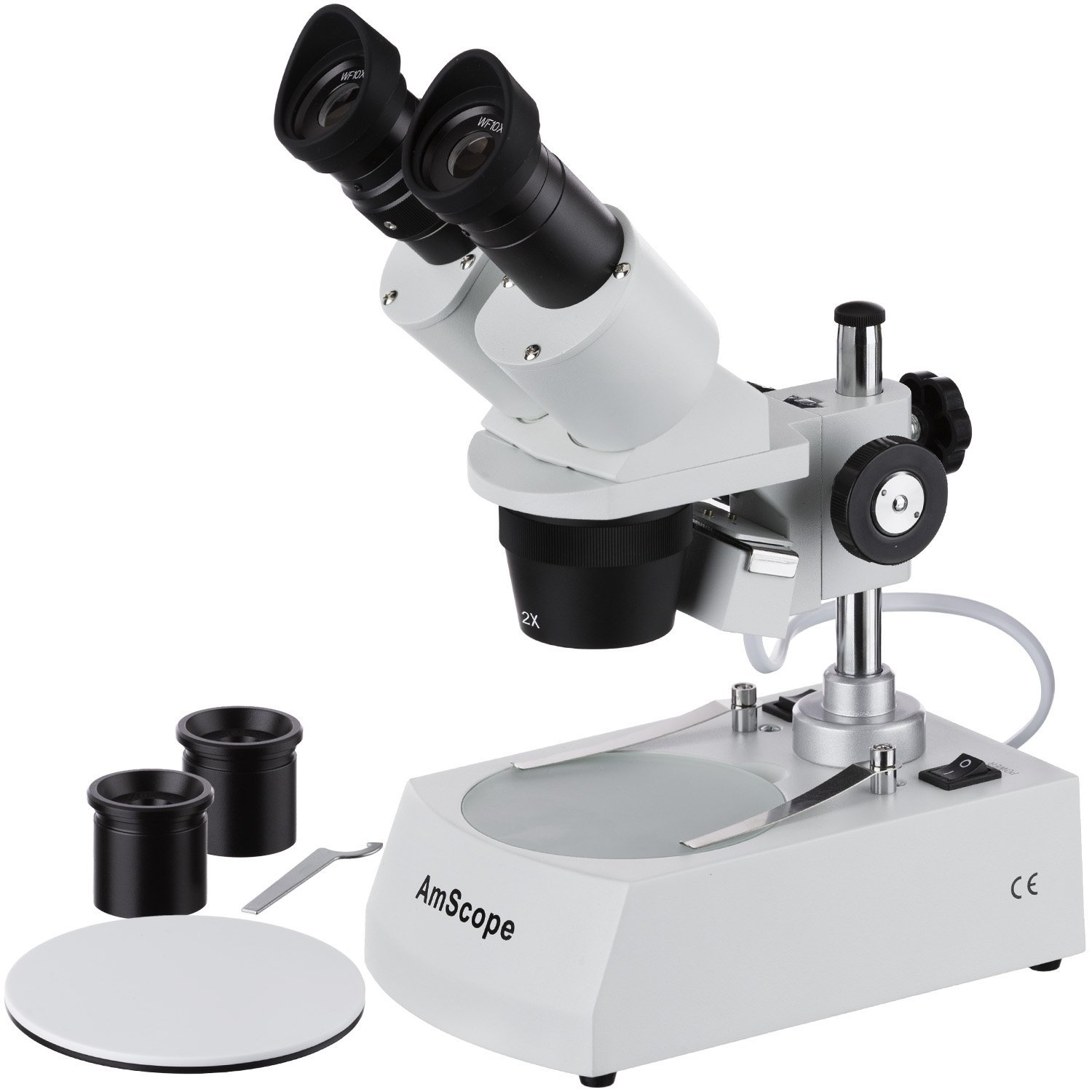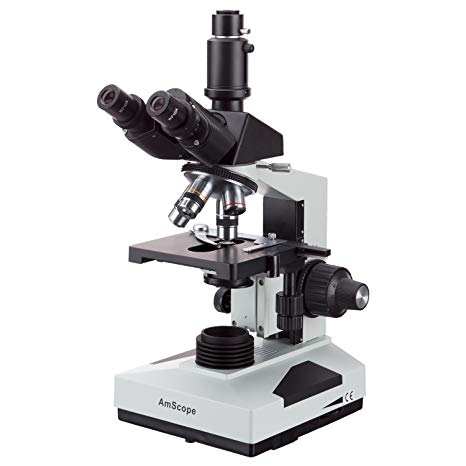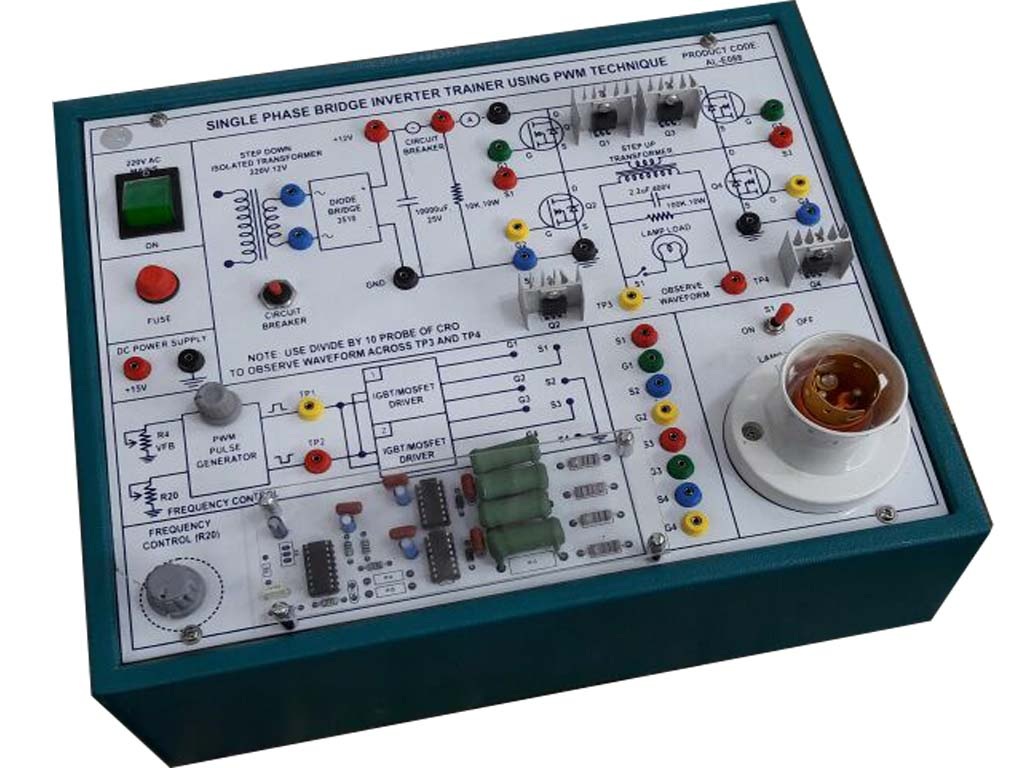
- Admin
- 0 Comments
Civil Engineering Lab Equipment Manufacturer in India
The need for Civil Engineering Lab Equipment is at an all time high due to the growing infrastructure and education sectors. Leading Civil Engineering Lab Equipment Manufacturers in India serving with precision instruments catering to the engineering colleges, research institutions, and construction companies across the African nations like Nigeria, Kenya, Ghana, Ethiopia, and South Africa.
Practical education and precise testing are fundamental components in curricula provided by new engineering campuses or during the execution of government funded road projects. In this post, we shed light on the importance of civil engineering lab equipment and present a comprehensive list of tools that every institution should consider.
What Is Civil Engineering?
Civil engineering covers a broad spectrum of engineering as it deals with the planning and construction of both physical works and works of nature. It is one of the oldest forms of engineering and has over the years helped create modern civilization. The presence of civil engineers has made it possible to have critical infrastructural facilities, for example, network for transportation, water supply, and electricity.
The Significance of Civil Engineering Lab Equipment
For civil engineers, hand-on training is vital within education. It is for this reason that universities and training colleges in Africa, relies on appropriate civil engineering lab equipment to nurture skilled professionals.
We are a leading Civil Engineering Lab Equipment Supplier and understand that every form of education requires hands-on training, which is why modern, accurate equipment is so essential.
Supports Practical Learning: Administers to learner’s testing of their theories and understanding of the actions of materials and structures in the environment on a deep practical level.
Improves Accuracy: Ensures accuracy in measuring material strength, soil behavior, and structural analysis.
Boosts Infrastructure Development: Helps ensure safety in the designing of buildings, roads, bridges, and dams by providing reliable lab data.
Prepares for Innovation: Allows engineers of the future in Africa to absorb new methods and ideas in sustainable construction and urban planning.
Leading Exporter of Civil Engineering Laboratory Equipment to Africa
In all countries of Africa, Civil Engineering Lab Equipment Exporter serves the interests of the continent’s growing economies. If you’re from a university in Nigeria, technical institute in Kenya, or a government project in Ghana, our equipment:
Certified by ISO & ASTM
Available for Global Shipping
Comes with Installation plus User Training Support
For Educational, Research, and Industrial Uses
Africa's engineering students and professional users must understand that modern lab equipment not only helps in learning but also gives them the power to design, plan and shape an effective infrastructure for the future.
We cater for all Africa’s engineering institutions in partnership as we manufacture civil engineering lab equipment, ensuring affordability, durability, and low-cost maintenance.
21 Essential Civil Engineering Laboratory Equipment
An Overview On Civil Engineering; The Continued Need For Advanced Testing Equipment And Tools.
Do you work in construction, civil works, or infrastructure projects in Africa? Then you are probably aware of how accurate tests and reliable equipment are crucial for a successful project. Construction and Project Engineers will tell you the importance of quality equipment when it comes to the testing construction materials as a trusted Civil Engineering Lab Equipment manufacturer, supplier, and exporter.
These lab tools assist with ensuring compliance with various standards in safety, strength, and alignment with international benchmarks across foundation testing and road construction. In this guide, we highlight a comprehensive civil engineering lab equipment list hence the guide with twenty-one tools and their applications will be invaluable to engineers, consultants, educators, and institutions all over the Africa continent.
Civil Engineering Lab Equipment List for Colleges
Below are some of the most important civil engineering lab equipment which we export to other engineering institutions around Africa:
1. Universal Testing Machine (UTM)
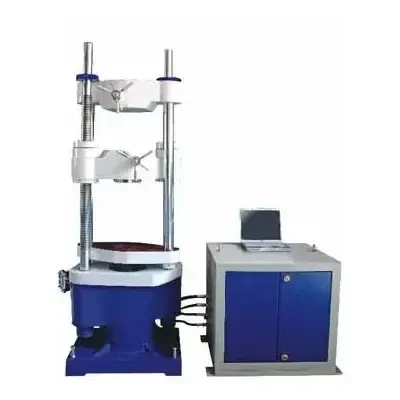
A universal testing machine (UTM) is a type of mechanical testing equipment used for performing tensile tests. It can also perform compression, flexure, and tensile tests on polymers, steel, and concrete, structural materials.
2. Compression Testing Machine
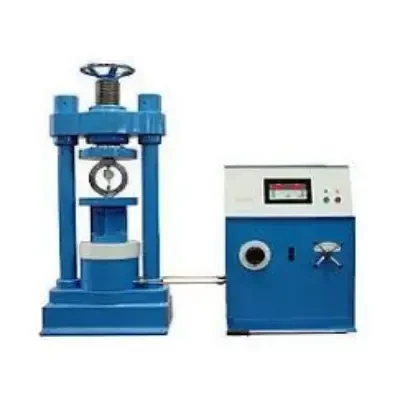
Used to evaluate the compressive strength of concrete cubes and cylinders. This device along with a construction site quad will ensure that concrete meets performance standards.
3. Vicat Apparatus
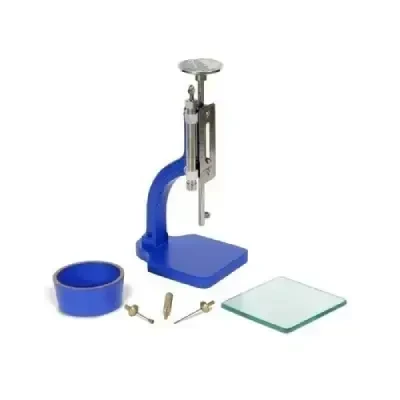
Determines initial and final setting times of cement. Ensures structural cement does not cure prior to its intended use.
4. Los Angeles Abrasion Testing Machine
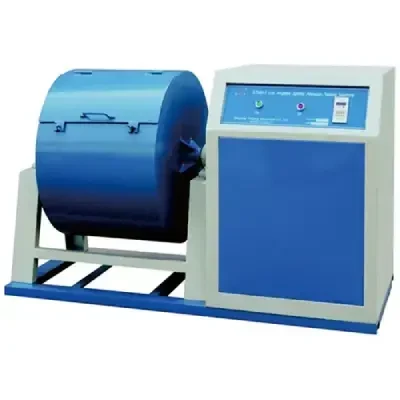
Assesses the abrasion resistance of aggregates. This is important for the long-term performance of roads and highways.
5. California Bearing Ratio (CBR) Apparatus
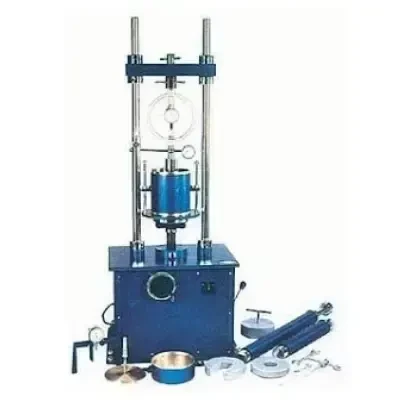
An important instrument for soil testing, particularly for the subgrades of roads and highways.
6. Proctor Compaction Apparatus
Determines the optimal moisture content of soils, which is essential for constructing stable foundations and embankments.
7. Sieve Shaker with Test Sieves
Classifies soil and aggregate particles by size and ensures proper gradation.
8. Slump Cone Apparatus
Assesses the workability and homogeneity of freshly mixed concrete. It is very common for the in situ verification of concrete mixtures.
9. Aggregate Impact Testing Machine
Tests the impact shock resistance of aggregates. This is crucial in choosing road construction materials.
10. Permeability Apparatus
Determines the speed at which water flows through soil. Its critical in the designing of drainage systems and soil evaluation.
11. Direct Shear Test Apparatus
Assists in measuring soil shear strength that is important for slope stability and the design of retaining walls in hilly or coastal areas of Africa.
12. Triaxial Shear Test Apparatus
This is sophisticated engineering apparatus used to determine the soil's behavior when subjected to stress, therefore, aiding in the safe construction of complex engineered works.
13. Flexural Testing Machine
It helps determine the flexural (modulus of rupture) strength of concrete beams which is important in the design of slabs and other structural components.
14. Bitumen Penetration Testing Machine
Evaluates the consistency and quality of bitumen for use in asphalt roads which is a requirement for every highway laboratory in Africa.
15. Marshal Stability Testing Machine
It is a vital bituminous mix design. It determines the load-bearing capacity and flow value of asphalt samples.
16. Consolidation Test Apparatus
This test provides essential information for architectural and structural design by assessing the settlement of soil under pressure.
17. Pycnometer
It is used in measuring specific gravity of soil particles. It is significant in proper soil grouping and classification.
18. Dynamic Cone Penetrometer (DCP)
Suitable for rapid evaluation of subgrade soil in field exercises. Commonly used in the construction of rural roads and other infrastructure.
19. Hot Air Oven
Heats and dries soil, cement, or aggregates, preserving accuracy in tests sensitive to moisture.
20. Soil Hydrometer
It helps measure fine soil particles within soil samples. It helps in determining the area of soil and the soil sample’s structure.
21. Core Cutter and Sand Replacement Apparatus
This equipment allows measurement of soil density on site, which is critical for evaluating the quality of soil compaction in the field.
Why African Civil Engineers Trust Our Equipment
As a prominent manufacturer, supplier and exporter of civil engineering lab equipment, we take pride in aiding the African countries in the construction of good and sustainable infrastructures. If you are in Nigeria, Kenya, Ghana, Ethiopia, Tanzania, South Africa or any other part of the continent, our lab equipment are:
Conforming to international standards (ISO, ASTM)
Economical and suitable for harsh environments and built to last
Supplemented with appropriate technical training, manuals, guidelines and workflows for optimal use
Prepped for export with prompt delivery all over Africa
Build Smart. Build Strong. Build Africa.
Civil engineering is the backbone of national development. The proper civil engineering laboratory equipment allows assurance for quality, safety, and durability of structures. Our equipment enables engineers so soil tests, concrete quality checks, and other reliable assessments that support informed decisions for enduring outcomes.
Seeking a Reliable Manufacturer of Civil Engineering Laboratory Equipment in Africa?
Reach out to us and get professional advice, affordable estimates, and expedited deliveries throughout Kenya, Nigeria, South Africa, Zambia, Ghana and other African countries. Collaborate with a civil engineering lab equipment dealer you can trust.

